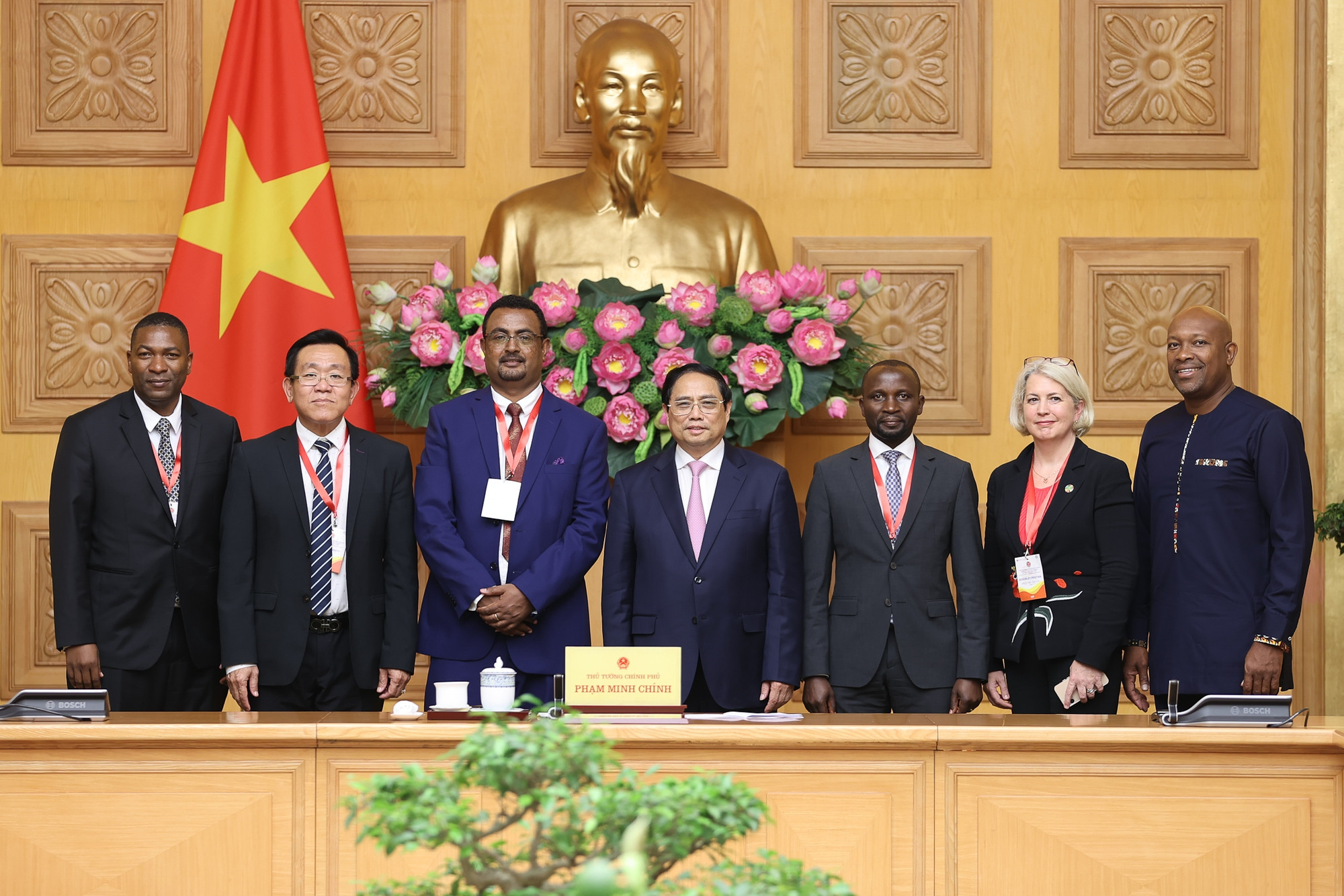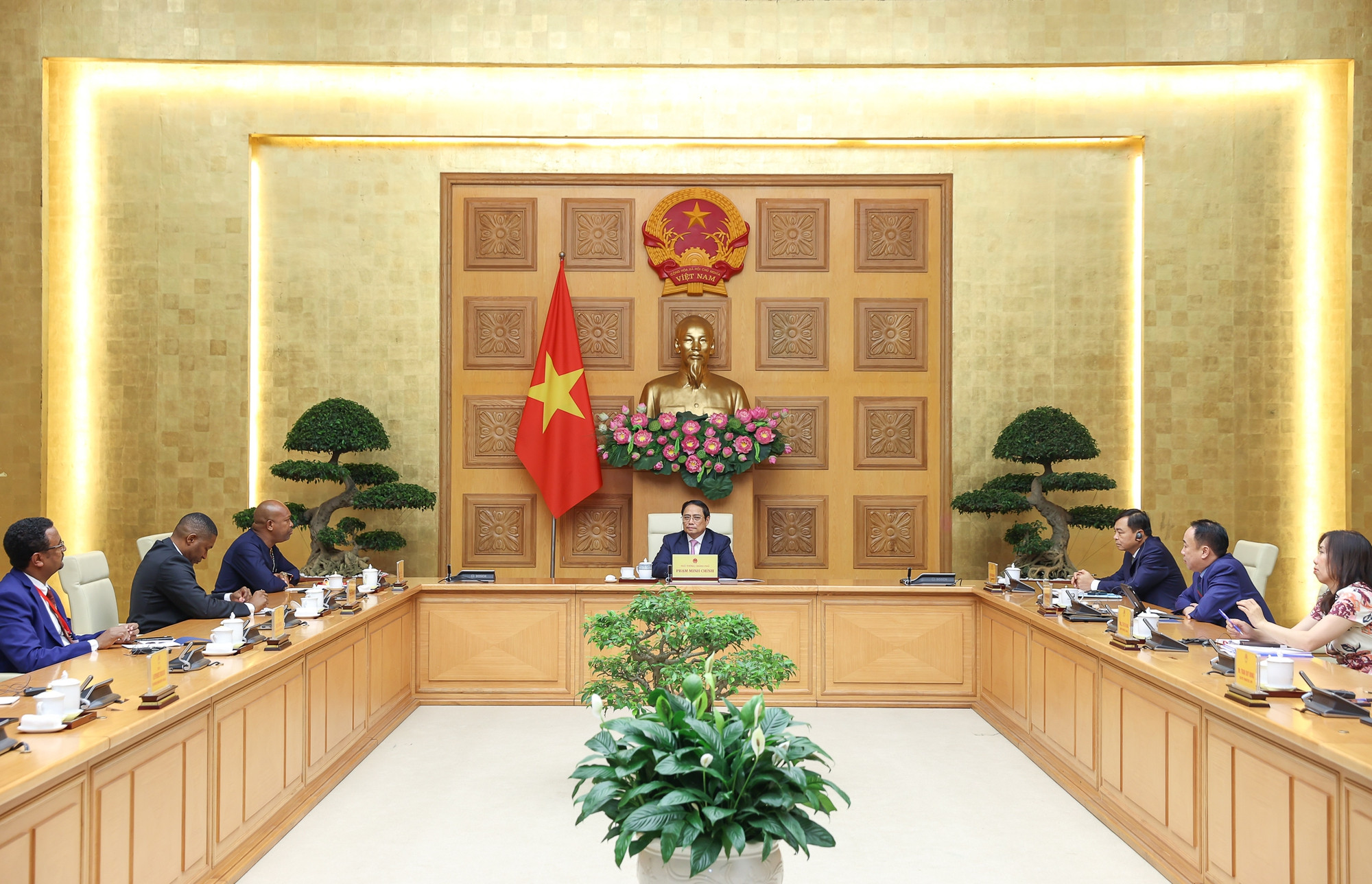
Prime Minister Pham Minh Chinh (4th from left) and leaders of agriculture ministries pose for photo at the Government Office in Ha Noi, Viet Nam, April 24, 2023. Photo: VGP
The Government chief hailed the crucial role of the SFS program in the common effort to achieve all 17 United Nations Sustainable Development Goals (SDGs), particularly in ensuring food security.
He affirmed that the conference took place at a very appropriate time when the world is striving to recover from the serious consequences of the COVID-19 pandemic on the health and social welfare of people, as well as the disruption of food supply chains, leading to food crises in many parts of the world.
Amid uncertain developments in the world, Viet Nam prioritises and continues to maintain macroeconomic stability, control inflation, promote growth, ensure the major balances of the economy and social welfare, including ensuring a balance of food and food exports, he said, adding that Viet Nam is restructuring its agriculture sector towards increasing added value and sustainable development, shifting the focus from agricultural production to agricultural economic development.
According to the Prime Minister, agriculture is providing livelihoods for over 60 percent of the rural population, accounting for 30 percent of the country's workforce and nearly 12 percent of the gross domestic product.

From a country that used to be dependent on food imports and underdeveloped in agriculture, Viet Nam has become one of the world's leading exporters of agro-forestry-fisheries, with a total export turnover of over US$53 billion last year.
The Prime Minister said the Vietnamese Government has issued the National Action Plan to transform a transparent, responsible and sustainable food system in Viet Nam by 2030 and stays ready to expand cooperation with other countries in building policies and spreading green, eco-friendly, low-emission, and sustainable food system models, contributing to ensuring food security in the country and the world.
He proposed that developing countries enhance the effectiveness of the South-South cooperation, in which Viet Nam is willing to share experience and work with other countries to develop agriculture and rural areas, eradicate hunger and reduce poverty, and food security with the support of bilateral and multilateral international partners.
The host suggested that relevant parties build mechanisms to attract investment, conduct research and technological application, especially post-harvest technology, pay attention to high-quality human resources training and the establishment of stable global supply chains based on the principle of mutual respect and sharing, and assist developing countries in agricultural development and transition of the food system towards green, clean, organic, and circular manner.
Leaders of agriculture ministries and Executive Director of Grow Asia Beverley Postma hailed Viet Nam for holding the conference amid the risk of a global food crisis due to the disruption of the global supply chain.
They spoke highly of Viet Nam's commitments and goals in transforming its food system to be healthy, sustainable, adaptable to climate change, and inclusive.
Agreeing with the Vietnamese Prime Minister's proposals, they pledged to report to their leaders to boost cooperation and wished that Viet Nam would send experts to their countries to share experience in ensuring food security and agriculture development, especially in rice, coffee, and seafood./. VNA